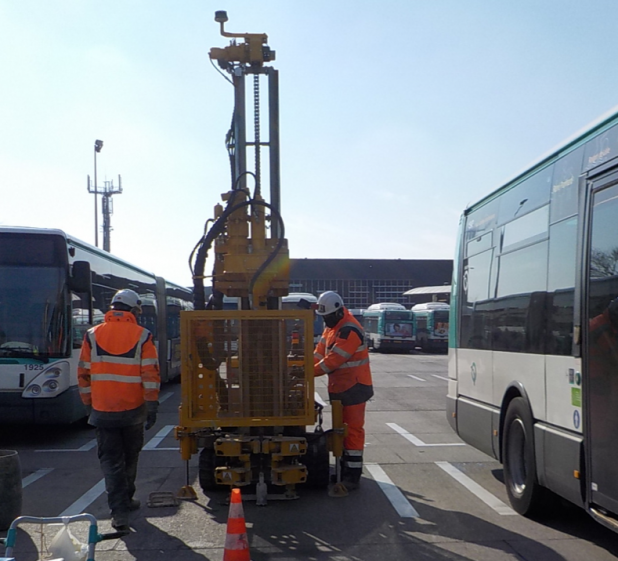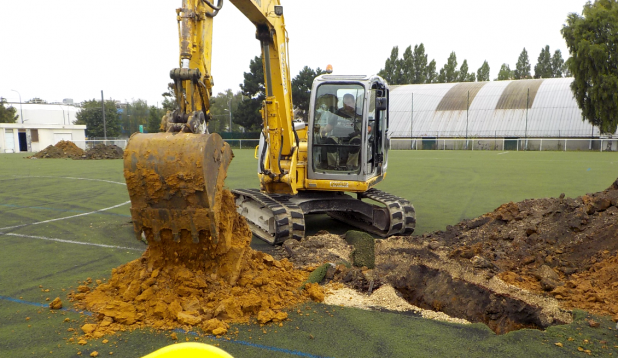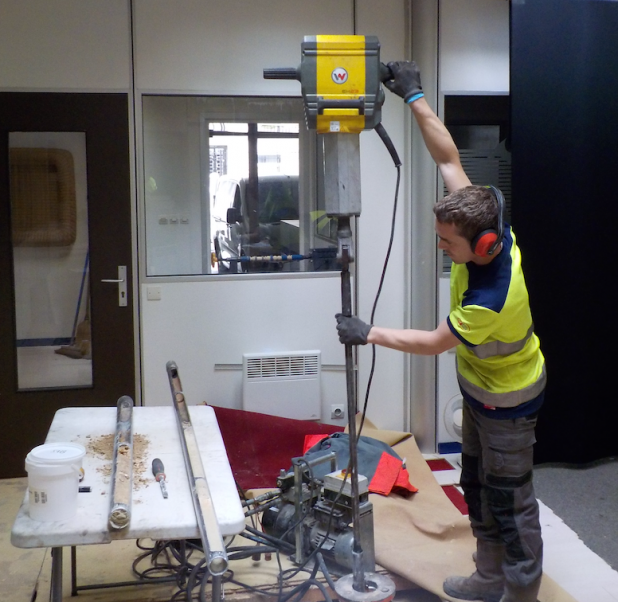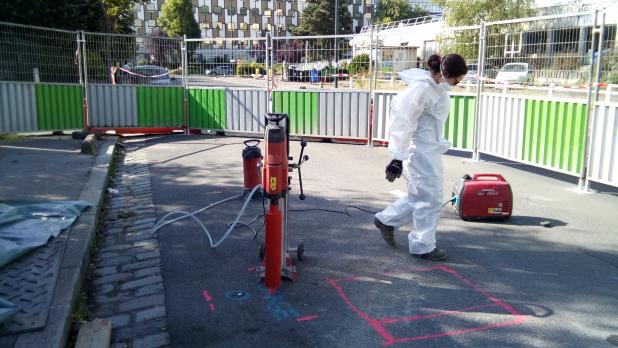The aim of the reconnaissance campaigns and investigation phases is to detect the presence of any pollutant concentrations in the soil at a site, in order to assess the environmental quality of the area under study.

The basic A200 service for soil investigations is generally carried out following the documentary study included in the INFOS service (site visit, historical, documentary and memorial studies, vulnerability study) for the various environmental diagnostics.
In the context of pollution research at an ICPE, an industrial site or following an accidental pollution incident, the service consists of searching for contamination in the soil and determining its horizontal and vertical extension. This involves iterative drilling to delimit the pollution pocket.
When determining the spread of pollution from an identified source, soil borings will be placed centrifugally around the source, taking into account any soil heterogeneity.
In the context of a real estate project, two issues need to be taken into account:
- The quality of the soil to be excavated and evacuated to a suitable landfill during earthworks;
- The quality of soil left in place which, if polluted, could pose a health risk to future users.
In the case of a real estate project with no particular presumption of soil pollution, soil sampling will be carried out in such a way as to audit the open spaces (gardens), the soil to be removed from the site and the soil left in place around the buildings.

With LNE certification obtained in 2017, Letourneur Conseil carries out all its services in accordance with current standards, thus ensuring a quality service. The A200 mission is based on the following texts:
- NF X 31-620 standard, December 2021 (polluted sites and soils);
- NF X 10-999, August 2014 (implementation, monitoring and abandonment of works);
- NF ISO 18400-102, December 2017 (soil sampling).

The objectives of the soil investigation campaign will therefore be to:
- Observe the lithological and organoleptic characteristics of the soil;
- Take intact or reworked soil samples to assess their quality through analyses carried out by an external COFRAC-certified laboratory accredited by the French Ministry for the Environment.


